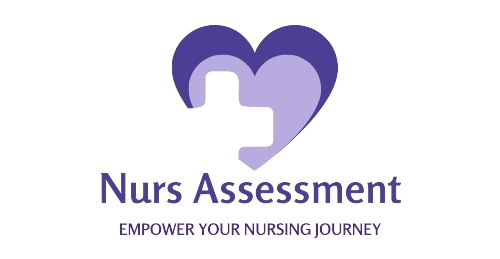Preliminary care is the first step in providing healthcare to a patient. It involves initial assessments, planning, and basic treatments to address immediate health concerns. This care sets the foundation for more detailed and ongoing treatments.
This care is crucial in emergencies and for patients with sudden health issues. The scope of preliminary care can range from simple first aid to more comprehensive assessments by healthcare professionals.
Preliminary Care Program
Preliminary care refers to the initial medical attention given to a patient. This care is essential for understanding the patient’s health condition and determining the best course of action. Preliminary care can occur in various settings, such as hospitals, clinics, and even at home.
Preliminary Care Planning and Coordination
Planning and coordination in preliminary care involve organizing and managing a patient’s initial medical needs. It includes assessing the patient’s condition, determining immediate treatment steps, and coordinating with healthcare providers to ensure seamless care. Effective planning helps ensure patients receive timely and appropriate care, setting a strong foundation for further treatment.
Family Involvement in Preliminary Care
Family involvement is crucial in preliminary knowledge of health care. Family members can provide essential information about the patient’s medical history, symptoms, and preferences. They can also offer emotional support and help with decision-making. Involving the family ensures that the care plan is well-rounded and considers the patient’s personal and medical background.
Ensuring Trust and Quality in Preliminary Care
Building trust and ensuring quality in preliminary care are essential. Healthcare providers should communicate clearly, listen to patients’ concerns, and provide compassionate care. Here’s a simpler version:
Doctors should do their best work and learn about new ways to help patients. This makes sure patients get good care that actually works.
Preliminary Impressions and Initial Care Responses
Preliminary impressions and initial care responses involve the first assessment and treatment a patient receives. This stage is crucial as it sets the direction for further medical care. Quick and accurate evaluations help identify the patient’s needs, allowing for immediate and appropriate interventions to stabilize their condition.
Insurance Coverage for Preliminary Medical Care
Understanding insurance coverage for preliminary medical care is important for patients. Many insurance plans cover basic assessments, emergency treatments, and initial consultations.
Preliminary Care in Emergency and Accident Situations
Preliminary care in emergency and accident situations focuses on providing immediate medical attention to stabilize patients. This includes first aid, quick assessments, and urgent treatments. Quick and good first aid in emergencies can keep people alive and stop problems from getting worse. It makes sure hurt or sick people get the important help they need fast.
Types of Preliminary Care Programs

Early care plans come in different types. They all aim to give basic medical help and make sure patients get the right treatment quickly.
Preliminary Care Coordination Plans
Preliminary care coordination plans involve organizing and managing a patient’s initial healthcare needs. These plans ensure timely provision of all necessary medical services.
- Assessment: Evaluating the patient’s health status.
- Communication: Coordinating with different healthcare providers.
- Follow-Up: Ensuring the patient continues to receive care and support after the initial treatment.
These plans help prevent gaps in care and ensure patients receive comprehensive support.
Preliminary Certificates in Healthcare Professions
Preliminary certificates are short-term educational programs designed for those entering the healthcare field. These certificates provide foundational knowledge and skills for basic medical care.
- Basic Training: Learning essential healthcare skills such as first aid, CPR, and patient assessment.
- Specialization: Gaining knowledge in specific areas like emergency care or elder care.
- Certification: Receiving a certificate that qualifies individuals to provide preliminary care in various settings.
These programs are ideal for those looking to quickly enter the healthcare workforce with essential skills.
Certificates
- Preliminary Certificate in Social Care
- Preliminary Certificate in Residential Care
Community-Based Preliminary Care Initiatives
Community-based preliminary care initiatives focus on providing basic healthcare services within local communities. These initiatives often involve collaboration between healthcare providers, local organizations, and volunteers.
- Accessibility: Offering care close to where people live, making it easier for them to get help.
- Education: Teaching community members about basic health practices and how to respond to emergencies.
- Support: Providing ongoing support and resources to improve overall community health.
Community Based care preliminary reports consist of their results.
Preliminary Care vs. Long-Term Care
Understanding these differences helps in choosing the right type of care based on the patient’s needs. Preliminary care is for immediate, short-term needs, while long-term care is for continuous, extended support.
Preliminary Care
Preliminary care is the first level of healthcare a patient receives. It focuses on immediate medical needs and quick assessments to stabilize a patient. Here are some key points:
- Short-Term: Provides immediate relief and addresses urgent health issues.
- Initial Assessment: Evaluates the patient’s current condition and determines the next steps.
- Basic Treatment: Offers initial treatments like first aid, basic medications, and simple procedures.
- Immediate Action: Designed to handle emergencies or sudden health problems quickly.
Long-Term Care
Long-term care full preliminary term standard is for patients who need ongoing medical support for extended periods. It focuses on managing chronic conditions and maintaining overall health. Here are some key points:
- Extended Support: Provides continuous care over months or years.
- Chronic Conditions: Manages long-term health issues like diabetes, heart disease, or arthritis.
- Comprehensive Care: Involves a range of services, including medical treatment, physical therapy, and daily living assistance.
- Ongoing Monitoring: Regularly checks the patient’s progress and adjusts care plans as needed.
Categorical vs Primary Care vs Preliminary : Clarifying the Roles
Each type of care plays a crucial role in ensuring comprehensive healthcare and improving patient outcomes.
Categorical Care
Categorical care is specialized medical care focused on specific diseases or conditions. Specialists who are experts in particular fields provide this type of care.
- Specialized Focus: Targets specific illnesses like cancer, heart disease, or diabetes.
- Expert Care: Provided by specialists such as cardiologists, oncologists, or endocrinologists.
- Advanced Treatments: Involves specialized procedures, medications, and therapies.
Primary Care
Primary care is the general medical care provided by family doctors or general practitioners. It’s the first point of contact for patients seeking medical attention.
- General Health: Covers a wide range of health issues and preventive care.
- First Contact: The initial step in the healthcare system for most patients.
- Continuous Care: Provides ongoing health management, routine check-ups, and basic treatments.
Preliminary Care
Preliminary care is the initial medical attention given to a patient to address immediate health concerns. It’s often the first step in treating an urgent or sudden health issue.

- Immediate Response: Focuses on quick assessments and stabilizing the patient.
- Short-Term: Provides immediate relief and basic treatments.
- Foundation for Further Care: Helps determine the next steps in the patient’s treatment journey.
Preliminary Care in Specific Contexts
Preliminary care plays a vital role across different settings. Each context highlights the importance of timely and effective preliminary care in ensuring overall health and stability.
Preliminary Care in Residential Settings
In residential settings, preliminary care involves providing immediate medical attention at home or in care facilities like nursing homes. This care often includes basic assessments, first aid, and monitoring of chronic conditions. Caregivers and nurses are very important in care homes.
They help residents when they’re sick or hurt, so they don’t have to go to the hospital. By acting fast when there’s a health problem, they keep residents healthy and stop small issues from getting worse.
Preliminary Care in Social Services
Early help in social services looks after people who need extra support. For example, those without homes, children who’ve suffered injuries, or people struggling with mental health.
- Check what these people need
- Give basic medical help
- Send them to other experts if needed
This early help is important. It finds health problems quickly and gets people the right support. When done well, it can make people’s lives better, safer, and healthier.
Preliminary Care in Healthcare Facilities
When people come to hospitals or clinics feeling sick or hurt, they get help right away. Providers call this first help preliminary care.
- Staff check the person quickly to see what’s wrong.
- They give basic treatment to make the person feel better.
- They decide what other care the person needs next.
Doctors and nurses work as a team to help patients fast. This quick help can stop health problems from getting worse. It also helps the hospital take care of patients in a smooth way.
Importance of Effective Preliminary Care Planning
Good early care planning is really important. It helps doctors decide how to treat a patient and help them get better.
- Checking the patient carefully
- Making quick choices
- Taking fast action to keep the patient stable and fix urgent problems
When doctors plan well, patients get the right care at the right time. This means they’re less likely to have more health issues later. It also gives them a better chance of getting better.
When doctors work together and plan what to do next, it makes the whole process of taking care of the patient easier and better.
Benefits of Early Preliminary Care
Early preliminary care offers several benefits that significantly impact a patient’s health and recovery.
- Quick Stabilization: Quickly makes the patient feel better and stops their condition from getting worse.
- Early Diagnosis: It spots health issues quickly so providers can treat them right away.
- Reduced Complications: Fixes small problems before they turn into big ones.
- Improved Outcomes: Helps the patient recover better by starting treatment early.
- Efficient Use of Resources: Uses doctors, nurses, and equipment wisely without wasting time or money.
- Better Coordination: Helps all the patient’s doctors work together to give the best care.
How does insurance covering preliminary medical care?
Understanding how insurance works helps you manage your healthcare costs better.
- Doctor Visits: When you visit a doctor for the first time to check your health, insurance helps pay for it.
- Network: Insurance companies work with certain doctors and hospitals. If you go to one of these, it costs less.
- Costs: You may need to pay a small amount called a co-pay. Sometimes, you pay a certain amount first (deductible) before insurance pays.
- Approval: Some tests or treatments need permission from your insurance before they pay for them.
- Limits: Your insurance might only cover a certain number of visits or tests in a year.
- Out-of-Network: If you go to a doctor not in your insurance’s group, it can cost more.
- Claims: After your visit, the doctor sends a bill to your insurance. You receive a paper stating what the insurer paid and what you owe.
How can individuals pursue a preliminary certificate in healthcare?
Doing these steps helps you get the skills you need for a job in healthcare.
- Find Programs: Look for schools or places that offer courses for the certificate.
- Requirements: See what you need to apply, like education or work experience.
- Apply: Fill out an application form and give your school records and maybe a letter of recommendation.
- Complete Courses: Once accepted, take the classes and do the training they ask for. This might include hands-on practice.
- Pass Tests: Some programs have tests to check what you learned.
- Get Certificate: After finishing everything, you get your preliminary certificate in healthcare.
- Keep Learning: In some fields, you might need more training to keep your certificate valid.
What are the ethical considerations in preliminary care decision-making?
- In preliminary care decision-making, providers must consider ethical issues to ensure they treat patients well. By following these ethical rules, healthcare providers can make sure patients get the best care possible.
- Consent: Patients should agree to treatments after knowing all the facts.
- Privacy: Keep patient information private and only share it when needed.
- Fairness: Treat all patients the same, no matter their background.
- Helpfulness: Do things that help patients and avoid things that might hurt them.
- Choice: Let patients decide about their own care based on what they think is best.
- Honesty: Be truthful about treatments and costs.
- Trust: Patients should trust that you’re doing what’s best for them, not for yourself.
- Conflicts: Avoid situations where your personal interests might affect your care decisions.
Conclusion
Early care is very important in healthcare. It helps patients who need quick medical help. Giving good early care helps patients get the right treatment quickly. This can make a big difference in how well they get better.
In the future, we want to make early care even better. This means finding faster and smarter ways to help in emergencies and make patients more comfortable. By focusing on early care, hospitals and clinics can take better care of all kinds of patients. This helps keep everyone healthier.


